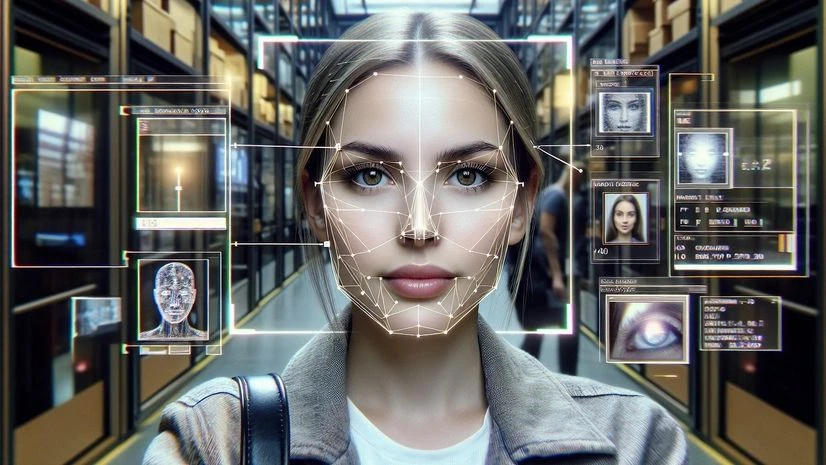Imagine looking at your selfie and finding a number that represents your biological age — finding out how old your body feels, rather than what the calendar says. This interesting concept, known as ‘face age’, is gaining traction in the world of medicine, where researchers are using artificial intelligence to determine the signs of aging in one’s face.
This technology is helping doctors make important decisions, from cancer treatment plans to predicting how long patients might live.
So can ‘face age’ really help doctors to combat diseases like cancer? US-based cancer specialist Raymond Mak had a strong feeling that his elderly patient was healthy enough to handle aggressive cancer treatment. To confirm this, Mak used an AI-driven tool that estimates a person’s ‘face age’. When he uploaded a photo of the 90-year-old, the test revealed that his health was more like someone in their late 60s, as reported by The Wall Street Journal.
This ‘FaceAge’ tool, designed to analyse facial features for signs of aging, uses an artificial intelligence (AI) model trained on thousands of images from medical and public sources. In a study led by Mak, the tool outperformed doctors in predicting how long cancer patients would survive, the The Wall Street Journal reported.
The FaceAge algorithm isn’t the only tool of its kind — there are already consumer versions online where anyone can upload a selfie to estimate their biological age.
Also Read
Mak, a radiation oncologist at Brigham and Women’s Hospital in Boston, Massachusetts, who co-led the study, said these digital tools aim to enhance clinical intuition. As AI technology advances, it’s becoming more integrated into healthcare. From detecting Covid-19 on X-rays to identifying conditions like Parkinson’s from facial scans, AI is starting to play a crucial role in patient care.
How FaceAge helps
Oncologists often rely on their instincts to assess a patient’s health, especially when determining treatment plans. When Mak met Lou Magelaner, a 90-year-old lung cancer patient, he was struck by how youthful the man looked. “My gut was like, he’s more like a 70-year-old,” Mak recalls, which led him to opt for a treatment approach suited for younger patients, as reported by The Wall Street Journal.
Photo: WSJ
After several weeks of radiation therapy, Mak tested Magelaner’s photo using the FaceAge tool. The result: The tool estimated his biological age at 66, reinforcing Mak’s confidence in the treatment.
Preliminary research suggests that cancer patients tend to look about five years older than healthy individuals, and this ‘older appearance’ could be linked to earlier mortality. In the study, FaceAge’s predictions, combined with other clinical data, helped provide a more accurate estimate of a patient's lifespan. While the study is still under review, researchers envision such tools potentially guiding treatment decisions or advising when to seek medical attention.
Can your face reveal your health?
The FaceAge tool is currently used in research, but other consumer-friendly versions are available for anyone curious about their biological age based on a selfie.
Novos, a company focused on longevity, offers a free test that evaluates different aspects of a person’s face, such as wrinkles and eye condition. Over 300,000 people have used this tool, according to Novos’ CEO, Chris Mirabile, who believes it can motivate people to adopt healthier habits. Mirabile himself takes the test every few months; his most recent results indicated he appeared 34 years old, though his facial ‘uniformity’ scored a relatively low 36 out of 100, the report said.
Researchers, like Jing-Dong Jackie Han at Peking University, are exploring how specific facial changes, such as the shrinking forehead or drooping eyes, correspond to age and health outcomes. Studies have found that people with a more youthful appearance tend to have younger blood, suggesting that biological age may be linked to overall health.
Inaccuracy challenges persist
Despite the potential, researchers warn that face-age algorithms still have a long way to go. Many public image datasets used to train these models are dominated by photos of wealthy celebrities, which could lead to inaccurate predictions, especially for underrepresented racial groups. Poor lighting, image quality, and cosmetic procedures also pose challenges.
Furthermore, concerns have been raised about how patients with ‘older’ facial scans might be treated differently by doctors, potentially affecting their care. As Nicole Martinez-Martin, a bioethics expert at Stanford University, explains, patients flagged by these tools might receive less attention, influencing their treatment options and outcomes, the news report mentioned.

)